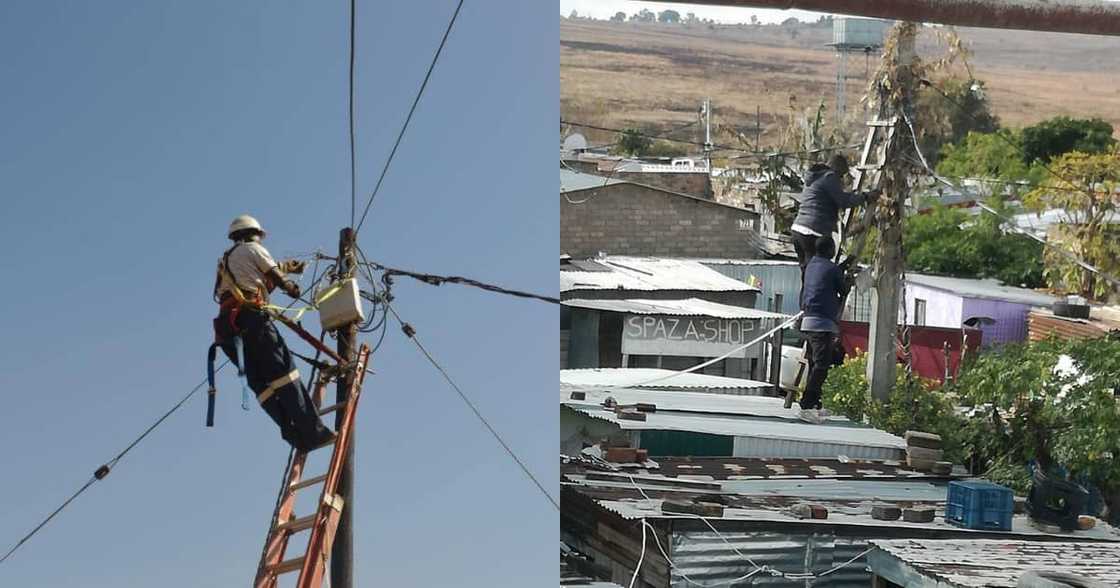Sowetan Residents Demand Flat Rate of R150 from Eksom, Take to the Streets in Protest to Power Cuts
- Residents of Soweto have taken to the streets to protest the ongoing power outages that have left people without power for months
- They are also demanding that Eskom charge them a flat rate of R150 from the power producer; Eskom claims that the residents owe the company R18 billlion
- Eskom claims that the majority of the outages are due to illegal connections including bypassing of meters, tampering and vandalising the electricity infrastructure
PAY ATTENTION: Click “See First” under the “Following” tab to see Briefly.co.za News on your News Feed!
Residents of Soweto took to the streets to protest months of power cuts that have made life very difficult and cost people a lot of money.
The residents are demanding that they be charged a flat rate of R150 per month for electricity. Eskom claims that illegal connections are responsible for most of the outages.

Read also
Boss moves: Young man saves NSFAS money to start own business, Mzansi showers the entrepreneur with praise

Source: Facebook
Those affected have had to buy food daily due to their food spoiling in their fridges. The schools have also suffered in the area and children have chosen to rather stay at home than go to schools with power.
According to IOL residents have complained that the power problems have been caused by an ageing infrastructure and a flawed billing system.
PAY ATTENTION: Never miss breaking news – join Briefly News' Telegram channel
No go area
Eskom maintains that the residents of Soweto owe the power producer an estimated R18 billion. The people of Soweto dispute this.
The protests have made the township a no go area with people being charged R10 to pass through areas where the protests are taking place. Taxis and buses have taken detours to avoid the protesters.
Illegal connections
Jacaranda FM reported that Eskom blames the constant power cuts on illegal connections and that technicians have been sent to the area.
“We appeal to members of the public to use electricity responsibly and to refrain from illegal connections and operating on the Eskom network, bypassing of meters, tampering and vandalising the electricity infrastructure to avoid supply interruption,” Eskom Gauteng spokesperson Amanda Qithi said.
Qithi said that the protests have made it difficult for technicians to access the affected areas. The outages in Soweto are in addition to load shedding the rest of the country is currently experiencing.
This has made life in Soweto very difficult.
Eskom CEO André de Ruyter says sorry
Earlier, Briefly News reported that Eskom CEO André de Ruyter released a public 'apology' for the issues faced by South Africans in terms of loadshedding. Stage 2 loadshedding was implemented earlier this week and is expected to conclude on Friday, 4 May.
Reports have revealed that the power utility made the situation for many Saffas worse as unscheduled power cuts occurred in many parts of the country. There have also been cases of power not returning at the end of the scheduled time.
De Ruyter stated that while loadshedding has been going on for over 15 years, there are a number of issues that have caused the regular power cuts. He explained that one of the reasons is a lack of maintenance dating back to the apartheid regime.
Enjoyed reading our story? Download BRIEFLY's news app on Google Play now and stay up-to-date with major South African news!
Source: Briefly News



